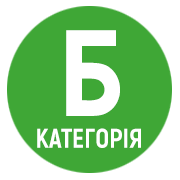THE CONCEPT OF «BEAUTY» IN ENGLISH AND UKRAINIAN LANGUAGES
DOI:
https://doi.org/10.32689/maup.philol.2024.3.5Keywords:
concept, cognitive linguistics, translation, advertising, textAbstract
The study is devoted to the problem of comparative analysis of subjective-evaluative, associative meanings in the Ukrainian and English languages, united by the concept of «beauty». The work is aimed at describing the linguistic means of denoting the beauty of people and the surrounding world from the point of view of the speaker’s intentions, taking into account the subjective-evaluative and associative connotations that arise during productive language activity. In the study, we identify and analyze prototypes, cognitive metaphors, stereotypical representations, and models of beauty, which are important for the perception and correct interpretation of information received by listeners, that is, for receptive language activity. The relevance of the research is explained by insufficient development in the comparative aspect of the Ukrainian and English languages in the following areas: the subjective-evaluative and associative meanings of the concept «beauty» have not been systematized; undescribed examples and cognitive metaphors of beauty; the relationship between the concepts of «beautiful» and «fashionable» has not been investigated; ways of expressing beauty with available language means are not systematized from the point of view of productive language activity; lacunae in the compared languages regarding the concept of «beauty» are not described; the dynamics of the development of the concept of «beauty» in the Ukrainian and English languages in a comparative aspect are not shown, although the need for such indicators appears in translation and literary practice. The object of this comparative study is the evaluative and aesthetic concept «beauty», represented in Ukrainian and English by lexical and phraseological units. The subject of research is the universal and specific characteristics of linguistic means that realize the meaning of beauty in language, as well as their components containing subjectively evaluative, associative and stereotypical representations. The hypothesis of this study boils down to the fact that the content of the concept «beauty» is more voluminous than the superficial linguistic entity of the same name, because in language this concept is objectified in a significant number of linguistic means, and in the minds of native speakers it is represented by a number of prototypes and stereotyped ideas, and includes a special system of associative and subjective-evaluative meanings. The purpose of the study is to identify subjectively evaluative contents, stereotypical, reference and associative ideas that influence the generation and perception of language in Ukrainian and English, as well as to describe the corresponding linguistic means and to compare cognitive metaphors. The scientific novelty of the research lies in the fact that for the first time an attempt was made to identify and systematically describe subjective-evaluative and associative meanings, stereotypical ideas, cognitive metaphors and standards of beauty in the linguistic consciousness of Ukrainians and Englishmen. During the study, the difference between the concepts of «beauty» in the Ukrainian and English languages is shown, which consists in the asymmetry and unevenness of the ratio of linguistic forms and their content.
References
Ануріна І. «Філософське, психологічне, естетичне, етичне та лінгвокультурологічне підгрунтя відображення концепту «краса» в британській, німецькій, українській лінгвокультурних спільнотах». Теоретична і дидактична філологія, Вип. 20 (2015): 108–18.
Жаботинська С. А. Моделі репрезентації знань у контексті різних шкіл когнітивної лінгвістики: інтегративний підхід / С. О. Жаботинська. Вісник Харківського національного університету ім. В. Н. Каразіна. No 848. 2009. С. 3–10.
Лисиченко Л. А. Мовна картина світу та її рівні / Л. А. Лисиченко. Збірник Харківського історико-філологічного товариства. Нова серія. Харків : Майдан, 1998. Том 6. С. 129–144.
Полюжин М. М. Сучасні напрями і підходи до вивчення комунікативних актів дискурсу. Іноземна філологія. 2004. Вип. 113. С. 163–171.
Приходько А. М. Концепти і концептосистеми в когнітивно-дискурсивній парадигмі лінгвістики / А. М. Приходько. Запоріжжя : Прем’єр, 2008. 332 с.
Сокаль Г. І. «Вербалізація концепту «краса людини» в текстах англомовної художньої літератури». Нова філологія, no. 56 (2013): 75–78.
Cambridge Dictionary. URL: https://dictionary.cambridge.org
Dijk T. A. van Discourse and manipulation / T. A. van Dijk. Discourse and society. 2006. Vol. 7. No 2. P. 359–383.
Etymological dictionary. URL: http:// www.etymonline.com/index.php?allowed_in_frame=0&search=beauty
Oxford Dictionary. URL: http://www. oxforddictionaries.com/definition/english/beauty






